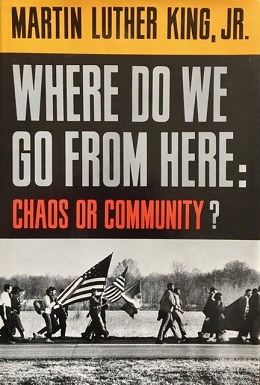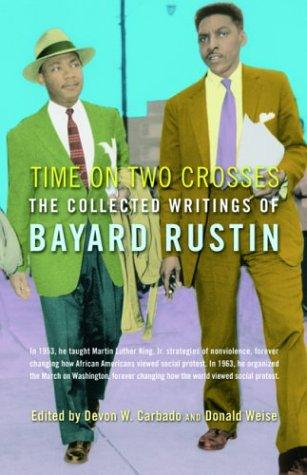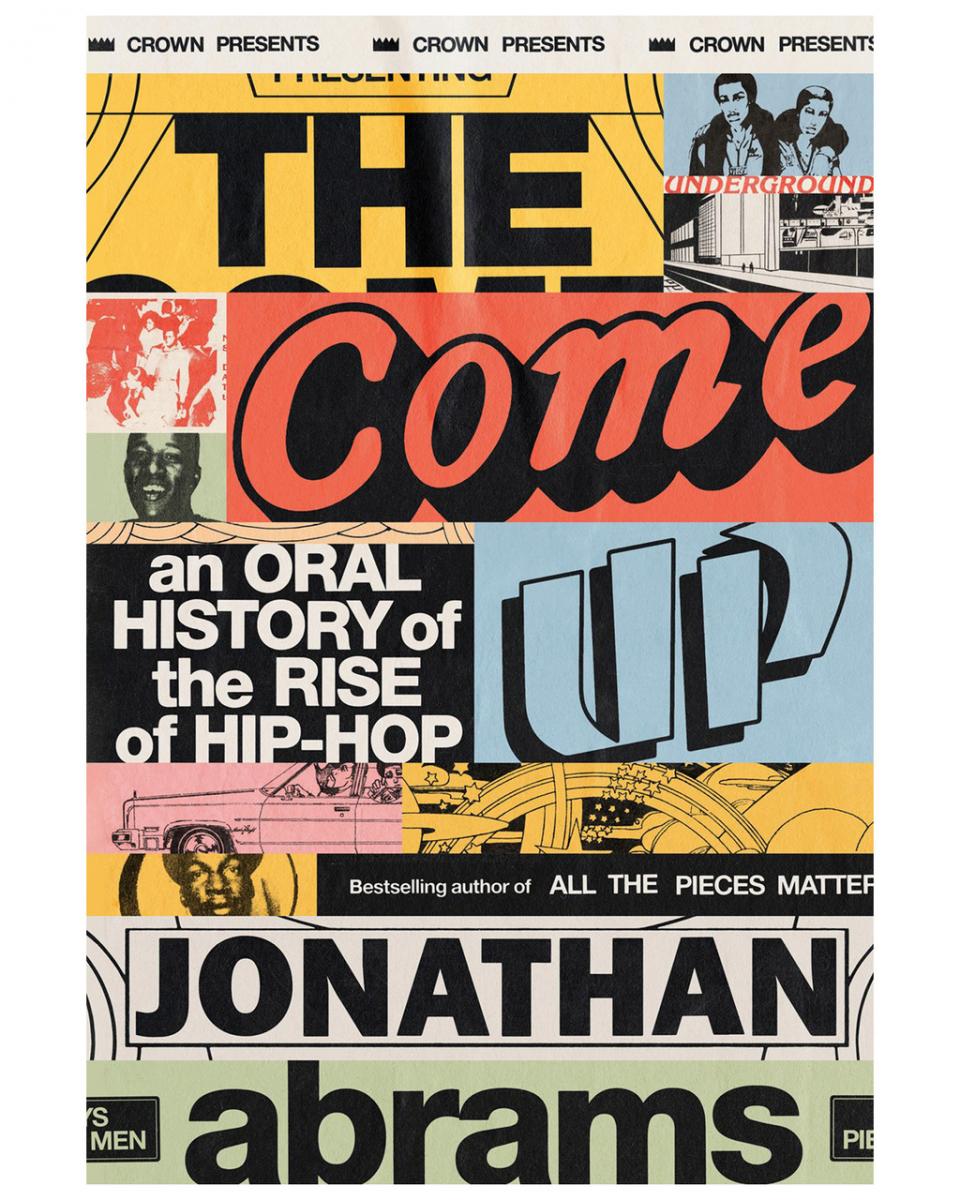Black History Month 2024: Staff Book Recommendations
As part of the Library's commemoration of Black History Month, we asked our staff to share book recommendations that reflect the diverse and extraordinary voices of Black writers and artists. The selections below can all be found in the Library's collection, and they include travelogues, poetry, fantasy, history, political theory, children's literature, and everything in between. We hope that you find a new favorite (or an excuse to revisit a classic) among them.
Additional recommendations for reading on Black history and culture can be found on our Black Literature Matters resource page.
Carolyn Waters, Director & Head Librarian
As a fan of stack 1 and our superlative collection of travelogues, I recently spied a book that caught my fancy for its title, A Stranger in the Village. To my delight, it is an annotated collection of travel writing by African-American writers over the past two centuries. Edited by Farah J. Griffin and Cheryl J. Fish, the book features short bios along with selections of travel narratives by many of my favorite authors – James Baldwin, Audre Lorde, W.E.B. DuBois, Richard Wright, June Jordan – as well as some newly discovered names like the 19th c. mountaineer James P. Beckwourth. The short pieces illuminate each writer’s experience as a traveler, but also particularly as an African-American traveler exploring locales as diverse as Paris, Russia, Mexico, the western United States, and the Caribbean.
Robert Sanford, Acquisitions Librarian
My mother worked in rehabilitation for the Boston prison system, and the book she always recommended was Manchild in the Promised Land by Claude Brown. After I read The Autobiography of Malcolm X in High School, my mother bought me a copy of Manchild in the Promised Land and said that it’s important to understand how other people live and to see a different perspective. The book is a novel, but it has been understood to be Brown’s coming of age memoir of growing up in Harlem in 1940s and 50s. James Baldwin called it “a tremendous achievement,” and it remains one of my favorite books to recommend and I hold it dear now having lived not far from Harlem in Washington Heights.
Michelle Andreani, Children's & Young Adult Library Assistant
Maya and the Rising Dark by Rena Barron is the first in a fantasy series about a young girl who is trying to rescue her father (and every other human) from a supernatural threat. The worldbuilding is based in African mythology, something I don’t read enough about, which made it a standout for me. If you’re looking for something else steeped in folklore but in the adult stacks, Love in Color by Bolu Babalola is just the thing. This collection of stories features myths from all over the world, some you’ve definitely heard before, retold through a non-Western lens. And they’re all about love, which also makes it the perfect Valentine’s Day read.
Don’t Call Us Dead: Poems by Danez Smith is a stunning poetry collection that laments and rages at the effects of racism and homophobia, while also celebrating love, tenderness, and the hope for a just and compassionate future.
MariaLuisa Monda, Events Assistant
Where Do We Go From Here: Chaos Or Community? written by Dr. Martin Luther King, Jr.
In the wake of uncertainty and strife, I turn to this fantastically essential read. This book explains with a more comprehensive context of King's non-violent movement and suggests ways that all of us, regardless of race, gender, religion, and like, should go forward. A main theme is on hope and how hatred is a monumental basis of not only the oppression of others, but how others use it as a foundation to govern others. "...Power at its best is the right use of strength. The words of Alfred the Great are still true: “Power is never good unless he who has it is good.” Nonviolence is power, but it is the right and good use of power..." Fun fact: This was the fourth and last book by the renowned Nobel Peace Prize laureate, Baptist minister, and social justice advocator (1967 by Harper & Row - a year before his assassination).
The Signifying Monkey: A Theory Of Afro-American Literary Criticism by Henry Louis Gates, Jr.
I've used this title for my thesis on tricksters and their importance in various world mythologies, folk and fairy tales, epics, fables, and similar folkloric narratives. The Signifying Monkey is classic and outstanding analysis of Afro-American literature and culture. The expression itself comes from stories about the signifying monkey, a trickster figure (originates from the trickster figure of Yoruba mythology, Esu Elegbara) said to have created during slavery in the United States. It has been awhile since I read it, but this calls for a reread!
Something, Someday words by Amanda Gorman; pictures by Christian Robinson.
I am unshamed to say that I teared up reading this picture book. It is an inspiring read on how even the smallest gestures can make the greatest differences. Whenever it is to pick up a crumbled tissue from the floor to coming together as a community, things do happen - for the better, and for all. You can watch and/or listen to Gorman's virtual storytime for Barnes & Noble here.
Randi Levy, Head of the Children's Library
History buffs, aspiring activists, and curious readers should check out these recent books on two American citizens born during the Jim Crow era who worked tenaciously in their efforts in the struggle for justice. Sweet Justice: Georgia Gilmore and the Montgomery Bus Boycott details Ms. Gilmore’s quietly subversive and courageous role in supporting the boycott physically—by refusing the bus—and financially--by using her cooking talent to raise funds for carpooling and fines. Opal Lee and What It Means To Be Free : The True Story of The Grandmother of Juneteenth sheds light, through Ms. Lee’s eyes, on life for Black Americans historically and into the modern era, including Lee’s advocacy—walking to collect 1.5 million signatures--for federally recognizing Juneteenth to honor history and keep it alive as we strive to do better. You can keep up with Opal Lee’s ongoing work (at age 97!) on her website.
Susan Vincent Molinaro, Children's and Young Adult Librarian
Some standout titles from Black writers and illustrators for the Children’s & YA community include Tami Charles’s We Are Here which chronicles the impact and legacy that African-Americans have made throughout history and features striking artwork from Caldecott Honor artist Bryan Collier. I already mentioned There Was a Party for Langston as one of my favorite reads of 2023 and I hope this picture book debut from Jason Reynolds, who was the National Ambassador for Children’s Literature for three years running, continues to gain fans, especially with its vibrant illustrations from the brothers Pumphrey—oh, and also check out the audio edition that you can enjoy in tandem with the print! Jumping up to the YA realm, but in vastly different time periods, I recommend Kalynn Bayron’s My Dear Henry, a queer Black retelling of the Jekyll & Hyde tale and Kelly McWilliams’s Your Plantation Prom is Not Okay, whose title clearly lays out the battle this high schooler fights throughout her senior year.So whether you’ve got a youngster curious to learn more about famous moments in Black history or teens eager to see history rewritten, pop by the Children’s & YA Library for these and other ideas.
 Time on Two Crosses: The Collected Writings of Bayard Rustin / edited by Devon W. Carbado and Donald Weise
Time on Two Crosses: The Collected Writings of Bayard Rustin / edited by Devon W. Carbado and Donald WeiseFor once, Netflix nails it: this divisive election year is the perfect time to get acquainted or reacquainted with the life and work of Bayard Rustin. I'd known Rustin as the tall man beside Dr. King in many a Civil Rights-era photograph, but this page-turning collection of his writing both enhances understanding of that pivotal time and sparkles with insight across the range of human experience. For Rustin, Black civil rights and psychological wholeness are inseparable from pacifism, workers' rights, anti-poverty efforts, what we might now call anti-carceral theory, and, later, gay/queer rights. These short, incisive pieces therefore prioritize ongoing work against racism, yet stay immune to some of the Left's schismatic tendencies. While calling America to account for the gap between what it proclaims and what it does, Rustin shows impressive fearlessness and a great heart of compassion that sees each person both in context and as an individual, never a faceless victim or oppressor – “respect for personality” is a beautiful recurring phrase. Time on Two Crosses also strikes me as a great primary-source complement to Isabel Wilkerson’s bestseller Caste.
Bonus shout-out to Matthew F. Delmont’s Half American: The Epic Story of African Americans Fighting World War II at Home and Abroad – catch up with our event recording of the author here.
James Addona, Head of Development
The Come Up: An Oral History of the Rise of Hip-Hop, by Jonathan Abrams
I've long been a fan of Jonathan Abrams' work, and The Come Up is an essential history of hip-hop compiled from over 300 interviews with artists, DJs, producers, and executives who shaped the genre. Interviews range from household names to voices that are not often heard in the telling of hip-hop's story, and Abrams creates a vivid narrative that engages the depth and breadth of its inventiveness and influence over the past 50+ years.

